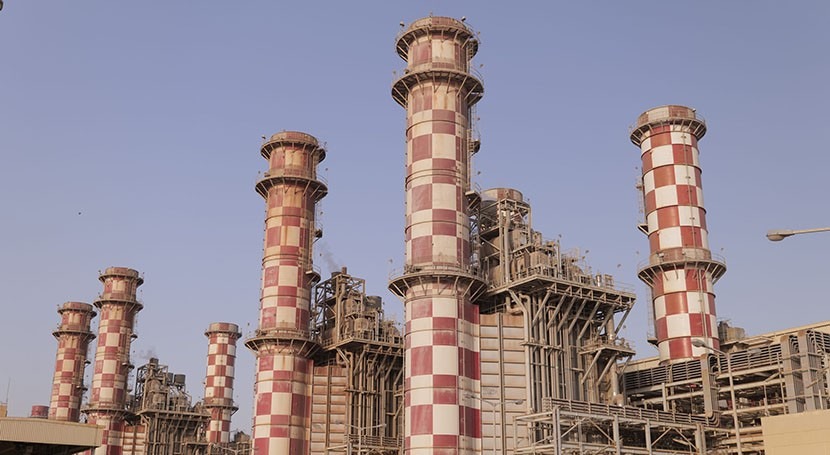MOROCCO – Acciona, a Spanish contractor, has begun construction on Africa’s largest desalination plant in Morocco, located south of Casablanca at Lamharza Essahel. The $650 million project, a public-private partnership, will produce 547,945 m3/d starting in 2026, eventually increasing to 821,917 m3/d, sufficient for 7.5 million people. The plant, which will be powered entirely by wind energy, includes ancillary works worth $300 million, such as a storage reservoir and pipelines. The project is part of Morocco's $14.3 billion climate change adaptation plan, responding to the country's severe water scarcity issues. Morocco's per capita water supply was critically low in 2015 and is projected to decrease further by 2050. (Global Construction Review)
JORDAN – Norwegian company Waterise is partnering with Jordan Phosphate Mines Company (JPMC) to build a desalination plant near Aqaba, Jordan, aimed at producing 49,315 m3/d. The plant will replace fresh water from a nearby aquifer, benefiting JPMC’s fertilizer production and potentially serving other users in Aqaba. Waterise’s technology is touted for its lower energy consumption, reduced land use, and faster construction compared to traditional methods. Despite setbacks with previous projects, including issues with international financiers, Waterise is advocating for more private sector involvement in solving Jordan's water crisis. JPMC, a state-owned entity with major phosphate exports, supports the project for its reduced environmental impact and is involved in planning and permitting. (The National)
INDIA – The Tamil Nadu government plans to issue tenders for constructing a 164,383 m3/d desalination plant in Thoothukudi, a port city in southern India. This plant will support local industries, including the emerging green hydrogen sector, which requires significant water for its production processes. The project, valued at $119.46 million, will be managed under a hybrid annuity model and will include a 33.18 kilometer conveyance system to Mullakadu. The plant aims to address Thoothukudi’s water needs, as the region heavily relies on the Tamirabarani River. This initiative reflects Tamil Nadu’s strategic focus on desalination to conserve freshwater resources and support industrial growth. (Smart Water Magazine)
IRAQ – Saudi Arabia's Water Authority announced a new desalination partnership with Iraq, reflecting the strong and improving relationship between the two nations. Sultan bin Muhammad Al-Rajhi highlighted Saudi Arabia's leading role in global desalination and its commitment to sharing expertise with Arab and Islamic countries. The Kingdom relies heavily on desalination, which provides 20% of the world’s desalinated water, and it produces around 15 million m3/d from various sources. This collaboration will involve significant knowledge transfer, with Saudi Arabia's experience being instrumental for Iraq's water management. The partnership is part of broader efforts to enhance bilateral ties and address water needs in both countries. (Iraqi News Agency)
BAHRAIN – Al Dur Power & Water Company, a major Bahraini firm in power generation and water desalination, has secured a $1.2 billion refinancing deal through a consortium of 17 banks. The refinancing includes a $643 million conventional facility and a $557 million Islamic facility, provided by both European and Middle Eastern lenders. Notable institutions involved in the deal include Abu Dhabi Commercial Bank, Al Ahli Bank of Kuwait, and Standard Chartered Bank, among others. The company, owned by ENGIE, Gulf Investment Corporation, Kyushu Electric Power, and the Social Insurance Organization, operates an Independent Water and Power Plant (IWPP) with a capacity of 1,234MW and 181,699 m3/d of potable water. This refinancing supports Al Dur’s continued operations under a 25-year agreement with Bahrain’s Electricity and Water Authority. (Smart Water Magazine)

Al Dur Power & Water Company has secured a $1.2 billion refinancing deal through a consortium of 17 banks. Credit: Engie
SAUDI ARABIA – The Saudi Water Authority (SWA) is showcasing its readiness for the Hajj season at the Hajj Media Hub 1445 AH. At the event, SWA distributed bottles of the world’s first packaged desalinated seawater, produced by the Shoaiba 4 system and enriched with magnesium using nanotechnology. (SPA)
AUSTRALIA – In Western Australia's Wheatbelt, farmers are turning to desalination to address water shortages and restore salt-damaged land amid one of their driest years. Moora farmer Kristin Lefroy has utilized a solar-powered desalination system, producing 36 m3/d for his livestock and new feeding facility. Similarly, Wongan Hills farmer Robert Sewell has upgraded to a large desalination system that produces 75 m3/d, benefiting his garden and improving herbicide effectiveness. The Department of Primary Industry and Regional Development is exploring desalination and deep drilling as solutions to manage saline groundwater and enhance water security. Sewell's system has restored 30 hectares of land, proving both effective and financially worthwhile, while providing significant peace of mind during drought conditions. (ABC News)
AZERBAIJAN – According to an Azerbaijani newspaper, Nuclear power plants (NPPs) could be used to desalinate Caspian Sea water, providing a solution to the region's water quality issues. By utilizing the heat generated from NPPs, seawater can be evaporated and condensed into fresh water, suitable for drinking and other uses. Technologies previously developed in Aktau, Kazakhstan, such as the BN-350 fast reactor, have demonstrated the potential of using nuclear heat for desalination with minimal environmental impact. These reactors, which were once used for water purification in the Soviet era, could be adapted for modern desalination needs. The approach highlights the potential of nuclear energy to address global water scarcity and environmental challenges beyond electricity generation. (NEWS.AZ)
